Uranium Nitricum, also known as Nitrate of Uranium, is a homeopathic remedy derived from uranium nitrate.
It is primarily associated with conditions such as diabetes, nephritis, liver degeneration, and dropsy.
This remedy is characterized by symptoms such as great emaciation, debility, dry mucous membranes, and skin.
It is indicated for individuals experiencing mental depression, gastric and duodenal ulcers, excessive thirst, copious urination, and urinary issues like diabetes and incontinence.

Table of Contents
ToggleSOURCE INFORMATION
Scientific Classification
- Chemical Formula: UO₂(NO₃)₂
- Common Name: Uranium Nitrate
- Other Names: Nitrate of Uranium
Origin and Historical Facts
- Uranium Nitricum is a chemical compound composed of uranium and nitric acid.
- It is primarily a product of laboratory synthesis and does not occur naturally.
- Historically, uranium compounds have been studied for their various properties and applications in nuclear technology, medicine, and industry.
- Uranium Nitricum’s use in homeopathy is based on its toxicological profile and observed effects on the human body.
Chemical Properties
- Uranium Nitricum is a yellow crystalline compound that is highly soluble in water.
- It is primarily used in laboratory settings for chemical research and experimentation.
Historical Use
- Uranium compounds, including Uranium Nitricum, have been studied for their potential medicinal properties, although their use in traditional medicine is limited.
- Historically, uranium compounds were investigated for their radioactive properties and potential therapeutic applications, particularly in the treatment of certain cancers.
Regulatory Status
- Uranium Nitricum is not commonly used in mainstream medicine and is primarily employed in homeopathic practice.
- In homeopathy, it is regulated as a pharmaceutical substance and is available in various potencies and formulations.
Safety Considerations
- Uranium Nitricum is a toxic substance and should be handled with caution.
- In homeopathic practice, it is used in highly diluted forms according to the principles of homeopathy.
- Like all homeopathic remedies, it is important to use Uranium Nitricum under the guidance of a qualified homeopathic practitioner to ensure proper dosage and administration.
Research
- Research on the specific effects and therapeutic efficacy of Uranium Nitricum in homeopathic practice is limited.
- Further studies are needed to elucidate its mechanism of action and clinical applications in various health conditions.
DRUG PATHOGENESIS
- Uranium Nitricum causes glycosuria (sugar in urine) and increased urine production.
- It is known to produce conditions such as nephritis (inflammation of the kidneys), diabetes, degeneration of the liver, high blood pressure, and dropsy (accumulation of fluid in tissues).
- The therapeutic keynote of Uranium Nitricum includes symptoms of great emaciation, debility, tendency to ascites (accumulation of fluid in the abdomen), and general dropsy.
- It affects various organs and systems of the body, including the head, eyes, stomach, abdomen, urinary system, and male reproductive organs.
KEY CHARACTERISTICS
- Glycosuria and Increased Urine: Leads to sugar in urine and heightened urinary output.
- Nephritis and Diabetes: Causes kidney inflammation and diabetes mellitus.
- Liver Degeneration: Results in liver damage and degeneration.
- High Blood Pressure
- Dropsy: Results in fluid retention and swelling.
- Emaciation and Debility: Presents with severe weakness and wasting.
- Ascites and General Dropsy: Tends to cause abdominal swelling and fluid accumulation.
- Backache and Delayed Menses: Associated with back pain and irregular menstruation.
- Dry Mucous Membranes and Skin: Manifests as dryness of mucous membranes and skin.
DETAILED ORGAN SYMPTOMS
HEAD
- Dull, heavy pain: The individual experiences a persistent, dull ache in the head, often accompanied by a feeling of heaviness or pressure.
- Sore nostrils with purulent discharge: The nostrils are tender and painful, and there is a discharge of thick, pus-like fluid, indicating inflammation or infection.
- Mental depression: The person experiences a state of sadness, hopelessness, and low mood, often accompanied by feelings of worthlessness or guilt.
EYES
- Inflamed, agglutinated eyelids: The eyelids are red, swollen, and stick together due to inflammation, possibly with the presence of pus or discharge.
- Styes: Painful, red lumps on the eyelid margin, typically caused by bacterial infection of the oil glands of the eyelids.
STOMACH
- Excessive thirst: The person experiences an intense and frequent need to drink fluids, often due to dehydration or an underlying condition.
- Nausea: The sensation of discomfort or queasiness in the stomach, often leading to an urge to vomit.
- Vomiting: The forceful expulsion of stomach contents through the mouth, often accompanied by nausea or abdominal discomfort.
- Ravenous appetite: The individual experiences an insatiable hunger or desire to eat excessively.
- Flatulence: The presence of excessive gas in the digestive tract, leading to bloating, discomfort, and possibly belching or passing gas.
- Gastric and duodenal ulcers with burning pain: Open sores in the lining of the stomach or the first part of the small intestine (duodenum), characterized by a burning sensation in the upper abdomen.
ABDOMEN
- Bloating: The abdomen becomes swollen or distended due to the accumulation of gas or fluid, leading to discomfort and a sensation of fullness.
- Gas: Excessive accumulation of gas in the digestive tract, causing bloating, cramping, and discomfort.
- Tympanites: Abdominal distension caused by the accumulation of gas in the intestines, resulting in a drum-like or tympanic sound when tapped.
URINARY
- Copious urination: The individual passes an abnormally large volume of urine, often indicative of underlying conditions such as diabetes or kidney dysfunction.
- Diuresis: Increased production of urine by the kidneys, leading to frequent urination.
- Incontinence: Inability to control the passage of urine, resulting in involuntary leakage.
- Burning in urethra: A sensation of discomfort or pain during urination, often accompanied by a burning or stinging sensation.
- Acid urine: Urine with an abnormally low pH level, indicating increased acidity, which may be associated with various urinary tract conditions.
MALE
- Impotency: The inability to achieve or maintain an erection sufficient for sexual intercourse.
- Nocturnal emissions: Involuntary ejaculation of semen during sleep, often referred to as “wet dreams.”
- Cold, relaxed, sweaty organs: The male reproductive organs feel cold to the touch, are relaxed or flaccid, and may exhibit excessive sweating, possibly indicating underlying hormonal or circulatory issues.
MODALITIES
- Aggravation: Symptoms worsen with mental depression, excessive thirst, nausea, and vomiting.
- Amelioration: Symptoms improve with rest and proper hydration.
RELATIONSHIP WITH OTHER REMEDIES
In homeopathy, understanding the relationship between different remedies can help in selecting the most appropriate remedy for a specific case.
Here is a comparison of several remedies mentioned:
Syzygium Jambolanum
- This remedy is derived from the leaves of the Eugenia jambolana tree, commonly known as the Jamun tree.
- It is primarily used for treating diabetes mellitus and its related symptoms, such as excessive thirst, frequent urination, and weakness.
Phos. ac. (Phosphoric acid)
- Phosphoric acid is indicated for conditions involving physical and mental debility, exhaustion, and nervousness.
- It is often used in cases of diabetes where there is a marked weakness and emaciation.
Lact. ac. (Lactic acid)
- Lactic acid is a remedy indicated for conditions where there is a profound weakness, debility, and exhaustion, often associated with chronic diseases.
- It may be considered in cases of diabetes with extreme weakness and fatigue.
Arg. nit. (Argentum nitricum)
- Argentum nitricum is indicated for conditions involving nervousness, anxiety, and digestive disturbances.
- While it is not a primary remedy for diabetes, it may be considered if there are accompanying symptoms such as nervousness and digestive issues.
Kali bich. (Kali bichromicum)
- Kali bichromicum is indicated for various respiratory and gastrointestinal conditions, characterized by thick, ropy, and stringy discharges.
- It is not commonly used for diabetes but may be considered if there are specific respiratory or gastrointestinal symptoms present.
Ars. (Arsenicum album)
- Arsenicum album is a remedy indicated for conditions involving anxiety, restlessness, burning pains, and weakness.
- While it is not a primary remedy for diabetes, it may be considered if there are symptoms such as burning pains in the extremities or anxiety.
Phloridzin
- Phloridzin is a glucosidal principle obtained from the bark of the root of apple and other fruit trees.
- It is known to produce diabetes and fatty degeneration of the liver.
- In homeopathy, it is used in cases where there is glycosuria (sugar in urine) without hyperglycemia (high blood sugar levels).
- It may be indicated in cases of diabetes with specific urinary symptoms.
DOSE
Uranium Nitricum is typically administered in low to medium potencies, such as 6C to 30C.
It is advisable to consult with a qualified homeopathic practitioner for proper dosage and administration.
Frequently Asked Questions
What is glycosuria?
- Glycosuria refers to the presence of glucose in the urine, often seen in conditions such as diabetes mellitus.
What is nephritis?
- Nephritis is inflammation of the kidneys, which can lead to kidney dysfunction and various urinary symptoms.
What is dropsy?
- Dropsy, also known as oedema, is the abnormal accumulation of fluid in the body’s tissues, leading to swelling and discomfort.
Is Uranium Nitricum safe for use?
- When used according to homeopathic principles and under the guidance of a qualified practitioner, Uranium Nitricum is generally considered safe for use.
Can Uranium Nitricum be used for self-treatment?
- While some homeopathic remedies can be used for self-treatment of acute conditions, chronic or serious conditions like diabetes and nephritis should be treated under the supervision of a qualified practitioner.
Meaning of difficult words
- Emaciation: Extreme thinness or wasting away of the body, often due to disease or lack of nourishment.
- Nephritis: Inflammation of the kidneys, typically characterized by symptoms such as proteinuria, haematuria, and swelling.
- Debility: Weakness or loss of strength, often resulting from illness or frailty.
- Ascites: Abnormal accumulation of fluid in the abdominal cavity, leading to abdominal swelling and discomfort.
- Pyloric: Relating to the pylorus, the opening between the stomach and the small intestine.
- Ulcers: Open sores or lesions that develop on the skin or mucous membranes, often caused by inflammation or injury.
- Tympanites: Abdominal distension due to the accumulation of gas in the intestines, resulting in a drum-like or tympanic sound when tapped.
- Copious: Abundant or plentiful, often used to describe a large volume of urine or other bodily fluids.
- Diuresis: Increased production of urine by the kidneys, leading to frequent urination.
- Incontinence: Inability to control the passage of urine or feces, resulting in involuntary leakage.
- Impotency: Inability to achieve or maintain an erection sufficient for sexual intercourse.
- Nocturnal emissions: Involuntary ejaculation of semen during sleep, also known as “wet dreams.”
- Flaccid: Soft, limp, or lacking firmness, often used to describe relaxed or weak muscles or organs.
- Potencies: Refers to the strength or concentration of a homeopathic remedy, often indicated by a number and letter combination (e.g., 6C, 30C).
- Hyperglycemia: Abnormally high levels of glucose (sugar) in the blood, often associated with diabetes mellitus.
- Glucosidal: Relating to or containing glucose, a type of sugar found in the body and in many foods.
- Principle: A fundamental truth or law that serves as the basis for a system of belief or behavior.
- Toxicological: Relating to the study of the adverse effects of chemicals or substances on living organisms, often used to assess the safety of pharmaceuticals or environmental pollutants.




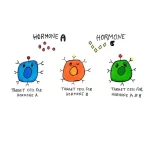

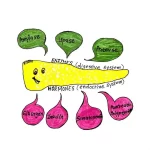
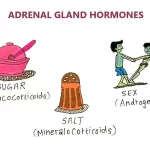

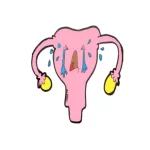

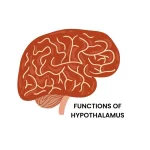

Leave a Reply